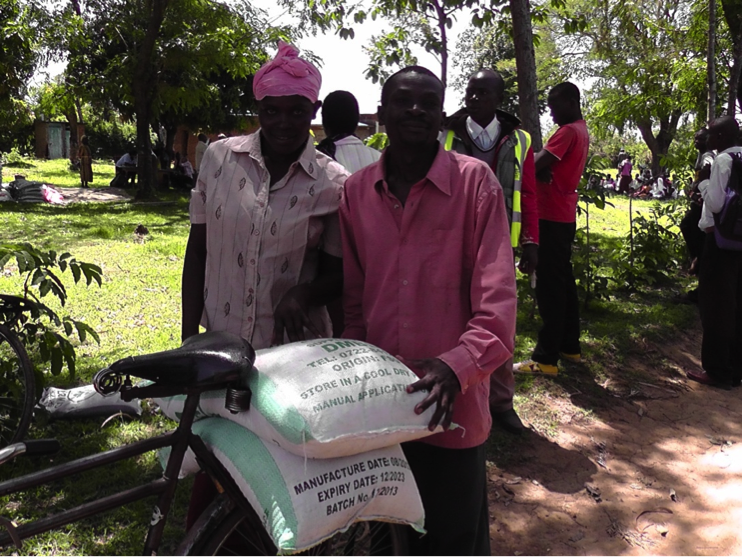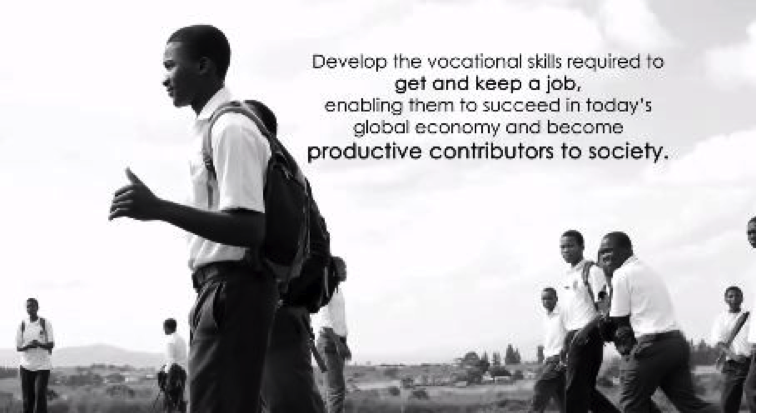Sub-Saharan Africa has the youngest population in the world aged 14 to 24, which could reach 265 million by 2050. Sadly, over 70% of young people in Africa live on less than US$2 per day and underemployment is high. Africa’s urban labour markets are breaking under the pressures of young people migrating from rural areas into cities.
There is however, a career path that has been neglected for these millions searching for profitable jobs. Agriculture is the continent’s biggest economic sector, but young people often see it as outdated, unprofitable and hard work. Yet, as the newly launched Montpellier Panel report “Small and Growing: Entrepreneurship in African Agriculture” argues, this is not the case. Agriculture is a dynamic sector, offering plenty of opportunities for entrepreneurs in agriculture, so called “agripreneurs”.
However, there are many barriers and pitfalls to becoming a successful agripreneur. Young entrepreneurs, in particular young women, are stifled by limited access to the tools and support they need. In its new report, the Montpellier Panel has outlined exactly what governments, donors and the private sector can do to create an environment that will allow agripreneurs to thrive. One key aspect, is education.
Education, education, education
Nearly one-quarter of the rural youth have plans to start a business, compared to 19% of urban youth. With vocational training to equip them with knowledge about new and innovative production methods, as well as programmes that will introduce them to the many opportunities for off-farm skill development, young people in rural areas could be much more productive. Young people struggling with their own businesses, but who show potential in the form of managerial skills, can benefit from targeted training, support for technical assistance and mentoring.

Tailored support and an environment that allows young people in the informal sector to develop professionally is needed for them to reach their full potential. This however, doesn’t happen by itself. Rather, a foundation of strong institutions and well-designed infrastructure must be built by governments.
It is also essential to shape education curricula and skills training in rural areas to support the rural youth in becoming entrepreneurs along the agribusiness value chain. By focusing on building the capacity of young people and women in particular, African will be able to increase the productivity of a large portion of their labour forces.
Unleashing ideas
Junior Achievement, an initiative in Africa, sees entrepreneurship as the key to enabling young people. Junior Achievement focuses on the underemployed and unemployed youth to create sustainable micro-enterprises and jobs by improving financial literacy and equipping young people with the necessary business management skills.
Fatou, a Junior Achievement alumnus who lives in the Gambia, is turning her experience into a successful, full-time career. She sells vegetables, condiments and buckets for water and storage at the local village market. From acquiring the skills to take charge of her own economic future, Fatou helps her extended family that relies on seasonal farming and harvesting wild fruit. In addition, Fatou helps her community by providing a local retail source for cooking supplies. Previously, shoppers had to walk a kilometre to a market in a neighbouring village to purchase supplies such as pots and pans.

Success stories, such as Fatou’s, show us that when given the opportunity, young people are ready to grab it and capitalise on it.
Calestous Juma once commented that “Seventy percent of employment in Africa comes from agriculture…” and that, “…in Africa, agriculture and economy are synonymous…”. This shows us that adapting education curricula and investing in the provision of the right training to engage youth in the agriculture sector simply makes business sense.
It will be the youth of today and the entrepreneurs of tomorrow who will ultimately modernise and drive Africa’s agricultural and economic development.



